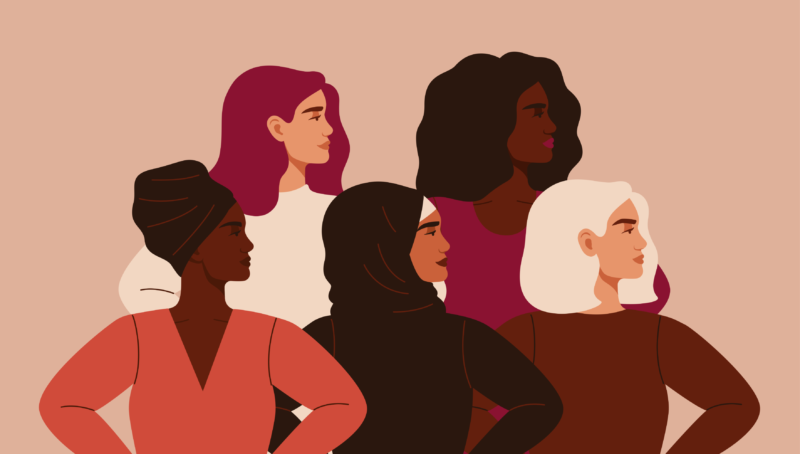
Women’s Economic Resilience
About This Collection
It’s two and a half years into the pandemic and the she-cession — the disproportionate impact on women and non-binary people — is still top of mind for many Canadians. What exactly have those impacts been? And who are the organizations and activists working to get us back on track on gender equity? In advance of the Future of Good Women’s Economic Resilience summit, this collection gets you up to speed on all this and more.
Canada’s first ever women’s economic abuse and injustice summit urges financial institutions to do more to help survivors
Ninety-three per cent of women’s abusers withheld money they needed for food, clothes, and other necessities. Creating access to banking accounts, loans, and emergency funds will help survivors leave their abusers for good.
What does reproductive injustice have to do with pregnant people’s poverty? To this doula organization, everything
Only 19 percent of women find a job after incarceration, compared to 50 percent of men. Assisting with abortions, cushioning healthcare costs and helping pregnant people find housing upon their release can help with reintegration.
“You have to fight the big economic structures”: Maude Barlow on 50 years of activism and how civil society can advance women’s economic resilience
The pandemic exposed deep inequity in Canada and around the world. Civil society must challenge the government power structures and fundamental economic institutions that create barriers to women’s economic independence for everyone to recover from the pandemic.
Will Budget 2022 give us a feminist economic recovery?
According to the federal government’s gender-based analysis report on the budget, 44 percent of Budget 2022 will benefit women and men in equal proportions. Meanwhile, 42 percent of measures will directly or indirectly benefit men more than women, and 14 percent will directly or indirectly benefit women more than men.
“Make transphobia unthinkable”: Six ways social purpose organizations can fight anti-trans hatred
Trans and nonbinary Canadians are among the most vulnerable clients a social purpose organization may serve. If organizations aren’t capable of showing explicit support for trans people, those clients won’t feel safe reaching out to network or ask for services.
Women’s economic resilience under fire: three under-the-radar ways the pandemic risks reversing Canada’s gender equality progress
If unaddressed, the pandemic’s compounding effects on women and nonbinary people’s safety, health, and economic independence will force them to play catch-up with Canada’s recovery plans.
“Inequality kills”: New Oxfam International report shows how inequality is caused by economic violence and wealth hoarding
Understanding the link between wealth, inequality, and public policy is crucial to devising new solutions that will allow the world to recover from the COVID-19 pandemic.
0.1 percent of the world’s philanthropic money goes to Black feminist activists — this global organization is working to change that
Black feminist activists are at the forefront of political and social change worldwide, yet they receive a miniscule amount of global philanthropic dollars. Closing that gap requires a new approach to grantmaking — one that’s Black women-led, trust-based, and community-first — and resources from the rest of the sector.
Gender equality organizations sometimes work in isolation. Equal Futures Network brings them together.
Gender equality organizations across Canada (and the world) are often trying to solve the exact same problems: domestic violence, discrimination in the workplace, a lack of child care. Many of the solutions are similar ─ and organizations can learn by sharing them.
Six major funding promises from the 2021 Generation Equality Forum
Surviving and recovering from the COVID-19 pandemic doesn’t just involve vaccines or public health measures. It also includes responding to domestic violence, high rates of female unemployment, and other gender-specific aftershocks — and those require serious investment.
Why We Can’t Stop Climate Change Without Gender Equality
Countless studies show that climate change disproportionately impacts women. Despite this, gender issues are often left out of climate action discussions. For Andrea Dicks, President of Community Foundations of Canada, the only way to achieve our climate goals is through collaboration—and that includes equality on all fronts.
